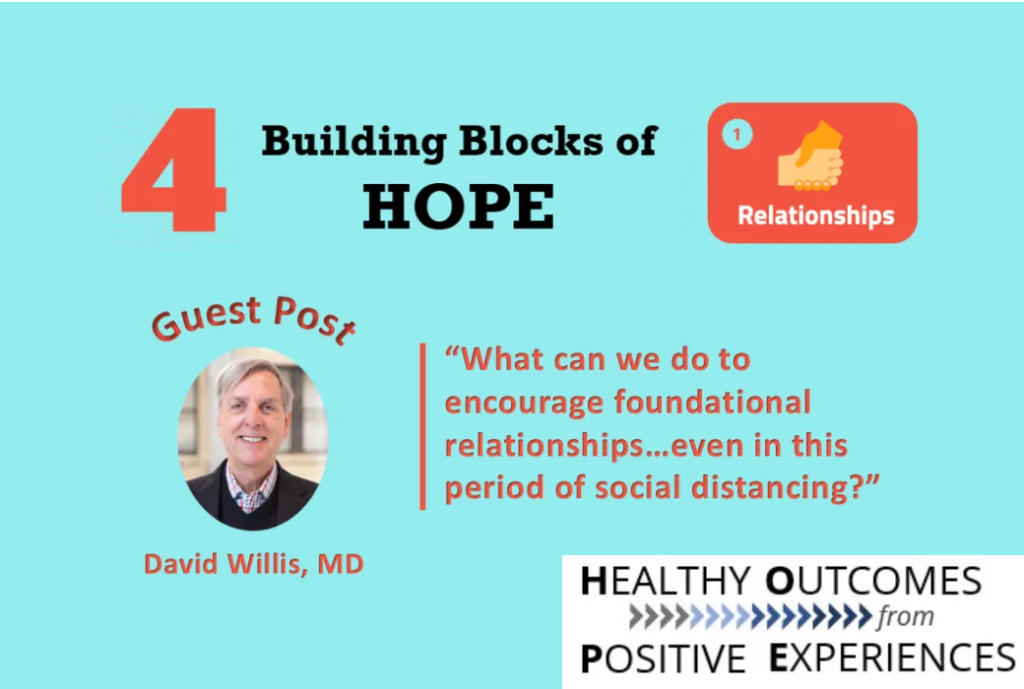Being in nurturing, supportive relationships are critical for children to develop into healthy, resilient adults. This concept forms the first of the 4 Building Blocks of HOPE. The first of these positive childhood experiences is having parents/caregivers who are responsive and interact warmly.
CSSP Senior Fellow David Willis further explored this building block as a guest blogger for HOPE—Healthy Outcomes from Positive Experiences—by discussing what we now know about those key foundational relationships that children need.
Our earliest relationships drive the acquisition of social-emotional and early learning capacities, kindergarten readiness, mental health, physical health and overall well-being. During the critical first 1000 days (from conception to age 2) the foundations of a healthy brain develop from nurturing caregiver-infant experiences. These foundational relationships early in life provide the necessary stability and supports for health and development.
Early relational health builds upon decades of research about the centrality of relationships between caregivers and very young children. The emerging view of child development focuses on the primacy of relationships for developing health and human capacity, supporting health and development in challenging times and mitigating ACEs (Adverse Childhood Experiences).
